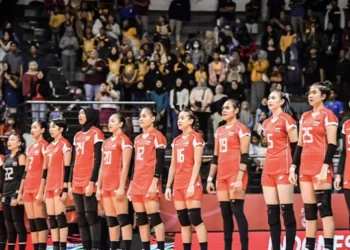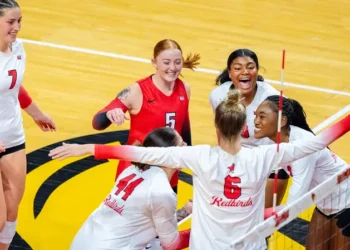Few athletes ever reach the rare air where talent, charisma, and legacy converge to create an icon. In the world of volleyball, that icon was known to millions simply as the ‘Queen of Volleyball.’ Her real name was Flo Hyman—a towering figure not only in height but in spirit and achievement. Her life story is as inspiring as it is heartbreaking, a tale of extraordinary triumph that ended far too soon.
Born Flora Jean Hyman in Inglewood, California, in 1954, Flo stood out from an early age—literally. She grew rapidly, eventually reaching 6 feet 5 inches tall, and with her height came both awkwardness and opportunity. While some children might have wilted under the cruel taunts of adolescence, Flo channeled her uniqueness into a weapon of greatness. Volleyball became her outlet, her stage, and ultimately, her legacy.
Hyman’s journey to stardom began in high school and flourished at the University of Houston, where she dominated the collegiate scene and quickly became the face of American women’s volleyball. Her playing style was electrifying. She possessed a powerful spike and an unmatched presence at the net. But beyond the stats and highlight reels, Flo was known for her grace, warmth, and her relentless drive to uplift women’s sports at a time when female athletes fought for basic recognition.
In the late 1970s and early 1980s, the United States women’s volleyball program was still searching for global respect. Flo Hyman was the linchpin that transformed the team into contenders on the world stage. She captained Team USA with poise and ferocity, leading them to a silver medal at the 1984 Los Angeles Olympics—still one of the greatest achievements in American volleyball history. That silver medal shone brighter than gold for many, symbolizing how far women’s volleyball had come and how much further it could go, thanks in large part to Hyman’s leadership.
What made Flo so special wasn’t just her game—it was her vision. She fiercely advocated for equality in sports, believing that women deserved the same recognition and support as men. She lent her voice to causes promoting opportunities for young girls in athletics, inspiring a generation to dream bigger. Many volleyball players today still cite her as their hero.
After the Olympics, Flo moved to Japan to play professionally in one of the world’s top leagues. There, she continued to dominate, bringing her trademark charisma and competitive fire to packed arenas. Fans adored her—she was not just an athlete but an ambassador, bridging cultures through the universal language of sport.
Tragically, it was during her time in Japan that the volleyball world would lose its queen. On January 24, 1986, while playing a match for her Japanese team, Hyman suddenly collapsed courtside and died moments later at just 31 years old. The cause was later determined to be Marfan syndrome, a rare genetic disorder that affects the body’s connective tissue and can lead to heart complications. Hyman had never been properly diagnosed; the condition went unnoticed despite her towering frame and the physical demands of her sport.
Her death sent shockwaves through the global sports community. How could someone so vibrant, so full of life and promise, be gone in an instant? Her passing was a stark reminder of the fragility of even the most seemingly invincible lives. It also brought awareness to Marfan syndrome and the need for better medical screening for athletes—a legacy that has helped save lives since.
Today, Flo Hyman’s influence is still felt both on and off the court. She was posthumously inducted into the Volleyball Hall of Fame and remains an enduring symbol of excellence, perseverance, and the power of sport to break barriers. USA Volleyball honors her memory with the annual Flo Hyman Award, given to players who embody her spirit and commitment to fair play and equality.
Her story continues to inspire not only volleyball players but anyone who dreams of using their gifts to make the world better. Though her life ended far too soon, Flo Hyman’s impact endures—a reminder that greatness is not only measured in medals but in the lives we touch and the paths we clear for those who follow.
In the echoes of packed gyms and on the beaches where young athletes hone their craft, the Queen of Volleyball lives on—in every spike, every serve, and every girl who believes that no dream is too big,
no obstacle too high.











